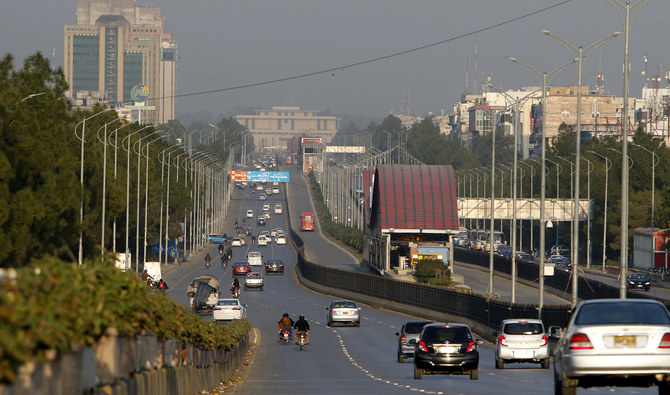ISLAMABAD: Saudi Arabia, the United Arab Emirates (UAE) and other Middle Eastern countries have been the "most strategic area" in terms of Pakistan's foreign policy and the South Asian country needs to evolve these partnerships, former diplomats and experts said on Friday, pointing to the region's importance as a major source of remittances and employment for Pakistani expatriates.
The comments by former Pakistani envoys and international relations experts came at a public hearing on Pakistan-Middle East ties, which was organized by the National Assembly's standing committee on foreign affairs in Islamabad.
Speaking at the hearing, the experts elaborated on the ongoing geopolitical shift and economic changes in the Middle East, and the opportunities they presented for the South Asian country.
“Saudi Arabia, the UAE and some other Middle Eastern countries remain the most strategic area in terms of Pakistan’s foreign policy as these countries have also been a major source of remittances and employment for us,” said Javed Hafeez, a retired Pakistani diplomat.
“Saudi Arabia and the UAE have extended $2 billion and $1 billion balance of payments support to Pakistan at a time when we are facing economic hardships.”
The $3 billion funds followed the release of $1.2 billion bailout funds to Pakistan from the International Monetary Fund (IMF) as part of a stand-by arrangement between the two sides to support the South Asian economy.
Pakistan received 54 percent ($18 billion) out of $31 billion of its foreign remittances last year from the Middle Eastern countries, Hafeez said, noting that Saudi Arabia and the UAE were major sources of these inflows.
The gulf countries, he said, had expressed their interest in corporate farming in Pakistan that would help the country get foreign investment and ensure food security and jobs creation.
“We need to further evolve this relationship in the fields of tourism, mining and petrochemicals,” the former diplomat suggested.
Dr Ayesha Siddiqa, a political commentator and author, said the Middle East was a big region and Pakistan’s relations with these countries needed expansion in diverse areas.
“These countries require skilled manpower to match their growing economies and Pakistan has to focus on this sector to fulfil the demand,” she said. “We need to strengthen our faith-based relationship and societal linkages with the Gulf countries.”
Pakistan’s foreign policy must be "inclusive" enough to secure its economic interests, Siddiqa added.
Riffat Masood, another former diplomat, said Pakistan could benefit from the Saudi Arabia's Vision 2030 which aims to pivot the Kingdom away from oil dependency and establish it as a global investment powerhouse with a sophisticated digital infrastructure.
“There are so many positive developments in the Gulf to benefit from, especially the Saudi Vision 2030,” she said. "We should not miss them."
Masood suggested the government to adopt a cohesive and consistent foreign policy to engage with the Gulf states.
Dr Amna Mahmood, a professor of political science at the International Islamic University Islamabad, stressed the need to define the country’s national interest to engage with the Gulf in a "constructive and positive" manner.
“As long as we don’t have political stability in Pakistan, it will be difficult to achieve economic stability despite the loans and funds from our friendly countries like Saudi Arabia and the UAE,” she said, adding that Saudi Arabia was the largest developing economy in the world and “we require skilled labour to benefit from the opportunities.”
Mahmood urged the government to focus on technical and vocational training of the workforce before exporting them to the Gulf for jobs.
“We need to enhance the volume of bilateral trade with the Gulf countries, try to boost our exports and skilled manpower to strengthen our economy,” she said.












